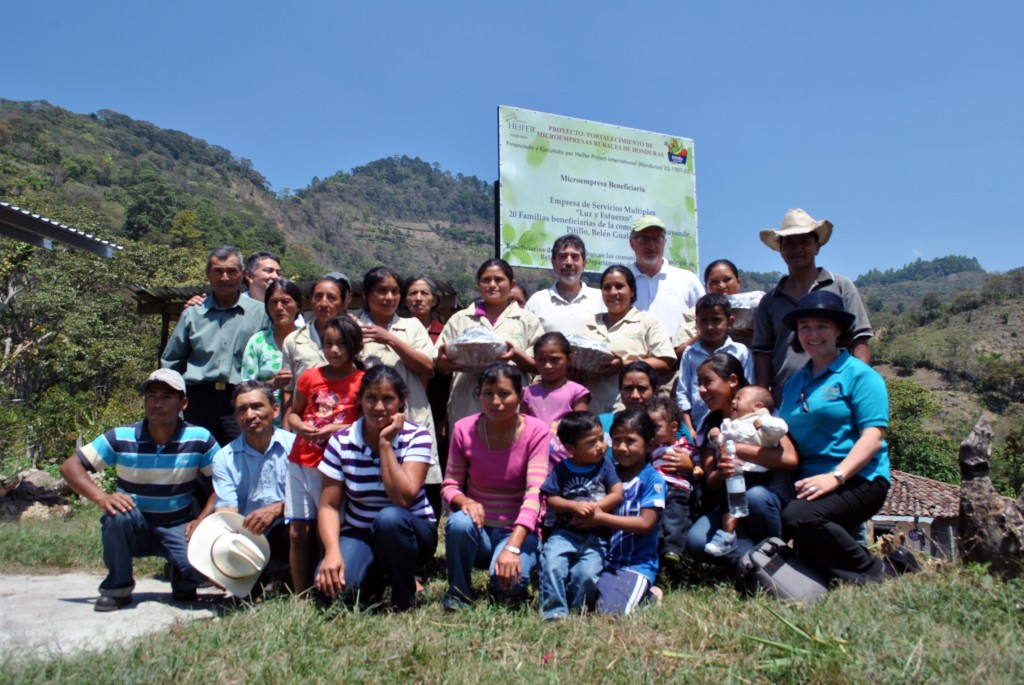Falguni Vyas is traveling with Heifer CEO Pierre Ferrari this week visiting projects in Honduras and Guatemala.
Belen-Ocotepeque in Santa Rosa-Belen, Honduras, sits just off a winding, bumpy road high in the Honduran hills. This small, rural community is home to 10 women entrepreneurs who, two years ago, started a small business canning vegetables and preserving jellies to sell at market to supplement their income. These women come together about once a month to prepare their Pitillo brand products for the market. They sell locally and will sometimes take the early morning, two-and-a-half-hour-long bus ride to San Pedro Sula, one of Honduras' largest cities, to sell at a larger market.
 The group of women who started a business canning vegetables and preserving jellies with Heifer CEO Pierre Ferrari and Vice President of the Americans Oscar Castaneda.
The group of women who started a business canning vegetables and preserving jellies with Heifer CEO Pierre Ferrari and Vice President of the Americans Oscar Castaneda.On the outside, it looks as though the conditions are perfect for a such a venture. Pickled vegetables are a popular condiment in Honduras, and there are no other competitors in Belen. However, there is not enough demand for each of the women in the co-op to make a significant contribution to their household's monthly income. The co-op was founded to serve as a means to augment the families' main source of income, which comes from coffee laboring during the harvest season—from October to January. But with low demand combined with low profit (each jar costs about $2.50 to produce and sells for $3) the co-op members realized they need to get creative and seek out opportunities for their pickles and preserves to bring in the revenue they need.
Last year the co-op applied to put the Pitillo product line into supermarkets across Honduras. This is a lengthy process with many steps. First, a bar-code is needed for the labels, requiring lots of paperwork. Then, the co-op must pass a sanitation and health inspection. Lastly comes another six to seven months of paperwork, meaning the process could take several years.
While the co-op waits to hear a response on their application, they are discussing ideas for diversification. They already supplement the pickled vegetables and jellies with fresh produce at market but know that they can do more. In a meeting today between co-op members, Heifer Honduras and Heifer International staff, these women leaders had the opportunity to talk through ideas and brainstorm marketing concepts that will take their Pitillo jellies and pickles from small supplementary income to major contributor to the security and stability of their families' livelihoods.
Right now, if you give to projects in Honduras and Guatemala, your donation could be matched dollar-for-dollar. Help other women just like those in Belen-Ocotepeque.